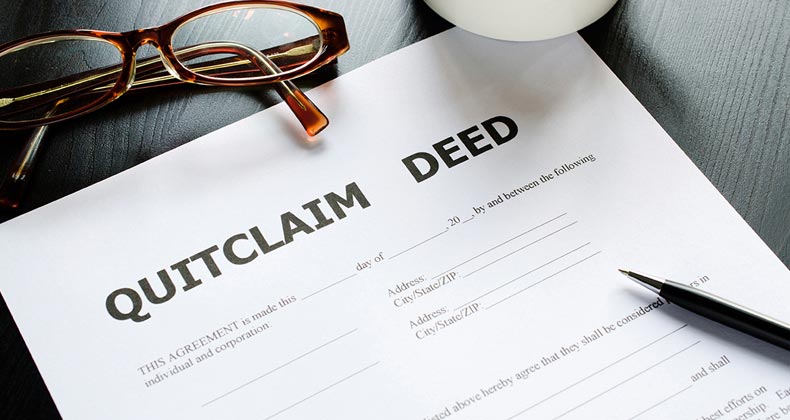
Things always change, they never stay the same, that's life. Sometimes we are prepared for them and sometimes they are unexpected. What happens when the unexpected is a hardship like illness or suddenly finding yourself without gainful employment. A variety of circumstances can crop up that make it difficult for you to keep up with your mortgage payments. While foreclosures and short sales are options, the premier option for struggling homeowners who want to keep their home are loan modifications. Loan modifications are a change in one or more of the terms of the original loan.
No one can guarantee the outcome of a loan modification. However, possible outcomes may include the following:
- Reduce Interest Rates
- Change Adjustable Interest Rates to Fixed Interest Rates
- Reduce Cap of Adjustable Interest Rates or Stop Upward Adjustment
- Reduction of Principal Balance
- Lower Monthly Payments
- Extend Terms of Existing Mortgage Loans
- Temporary Interest-Only Payment Plans
- Avoid Foreclosure
- Arrange for Delinquent Payment Amounts to be Reduced or Eliminated and Added to The End of The Loan or a Longer Loan Period
The increased popularity and interest in loan modifications has resulted in an onslaught of confusion surrounding loan modification facts. The list below are the top seven loan modification facts.
1. You Do Not Have to Be Late On Your Payment to Qualify for a Loan Modification
If you are struggling to keep current on your mortgage payments you may be eligible for a loan modification. You don't have to be behind on your mortgage. Although it used to be true, you do not have to be late on your mortgage to qualify. However, all of this changed when the U.S. government passed the Making Home Affordable Act in March 3, 2009. This offered help to consumers who were experiencing a financial hardship, but fighting to keep their credit in good standing by making their payments on time.
What is supposed to happen is if you know you are likely to default on your mortgage in the very near future ("imminent default"), you should be able to reach out to your lender for assistance. This could be because a you are going through a financial hardship such as unemployment or change in income. Perhaps you know that you will have medical expenses or an increase in your mortgage payment due to a payment or rate adjustment. Anything that makes your mortgage payments unaffordable, if you speak with your loan servicer in advance and put together all the required documentation you may be able to get your loan modification even though you are not late on your payments. Know that you will have to prove the hardship(s) or change(s) in your situation.
Unfortunately, the majority of banks will not consider you to be in a financial hardship unless you are late or a few payments behind on your mortgage.
2. Loan Modification is an Application Process, Not a Guarantee
One of the most common loan modification facts involves the Making Home Affordable plan. Simply put, this is a plan and not the law. In other words, lenders are not required to modify your mortgage loan just because you qualify. While the government offers lenders financial incentives to modify these loans, lenders are not forced by law to do so. At the end of the day, it's still up to the lender to decide whether or not to modify the loan.3. Loan Modifications Can Reduce the Loan Principal
Although this scenario is uncommon, loan modifications can reduce the principal of the loan. However, you shouldn't expect it. If someone is promising you that they can have your balance reduced, you should be very leery of this person or organization. It's a loan modification fact that lenders can perform several adjustments to the principal to reduce monthly payments. For example, lenders will commonly defer payment of a significant portion of the principal to the back of the loan or the maturity date and not accrue interest on that principal.4. Your Loan Doesn't have to be a Fannie Mae or a Freddie Mac Loan to Get a Modification
Your loan does not have to be a Fannie Mae or Freddie Mac loan in order to qualify for a loan modification. If you have a conventional mortgage you may qualify for one of the federal mortgage assistance programs. Know though that lenders are not required to approve loan modifications. The only thing lenders and servicers can truly be expected to do is earn their shareholders a higher return. In most cases, lenders will do the minimum to skirt the total loss of faith in the U.S. banking service. Going through the loan modification alone can be confusing and disheartening. However, lenders holding conventional mortgages recognize the disadvantages of carrying out foreclosures and many are willing to negotiate to keep borrowers in their homes. Many lenders realize that foreclosure may result in larger losses to their investors. As a result, servicers and lenders are more receptive to loan modifications as an alternative to foreclosure.5. You Don't Need a Lawyer to Obtain a Loan Modification
Even though the process might seem intimidating, you can apply for and obtain a loan modification on your own without paying for assistance. However, working with your lender can be very complicated and stressful. There are qualification formulas and financial packages that the banks need to see in order to qualify a homeowner for a loan modification. In being approved or denied, knowing how to submit a loan modification application to a lender makes all the difference.6. Foreclosure Shouldn't Proceed During the Application Process
Effective January 10. 2014, the Consumer Financial Protection Bureau, the National Mortgage Settlement, and some state laws limit the ability of servicers to proceed with foreclosure while also negotiating a loan modification. To do is called “dual tracking” and is illegal but only for certain lenders. This does not mean you should ever ignore any foreclosure paperwork. We recommend you have an attorney review any legal documents you recieve.
7. Length of a Loan Modification
A loan modification could take anywhere from three to six months or more to be completed. Although, We have negotiated a few loan modifications as quickly as three weeks, it is routine for the modification process to take several document requests and additional submissions before it is ever reviewed by your bank, extending the negotiation time considerably.











